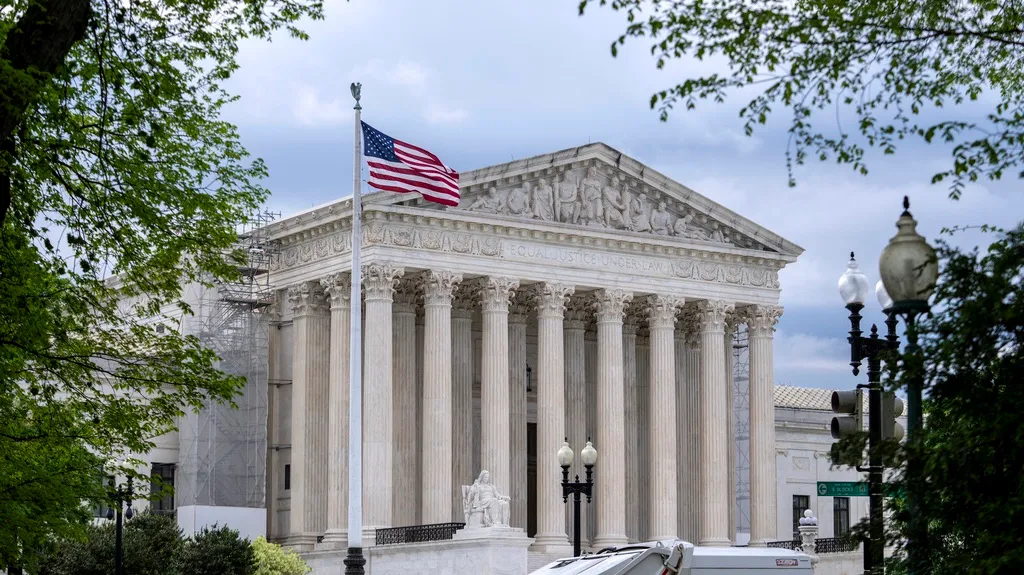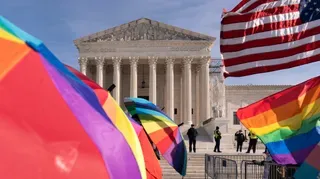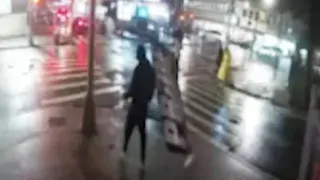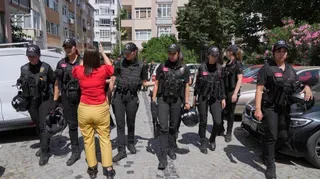August 13, 2022
Lutheran Official Apologizes for Trans Bishop's Firing of Cleric
Deepa Bharath and Holly Meyer READ TIME: 3 MIN.
Elizabeth A. Eaton, presiding bishop of the Evangelical Lutheran Church in America, issued a public apology Tuesday to members of a majority Latino immigrant congregation for the pain and trauma they endured after the predominantly white denomination's first openly transgender bishop unexpectedly fired their pastor.
Speaking during the 2022 Churchwide Assembly being held in Columbus, Ohio, Eaton delivered the apology to members of the Iglesia Luterana Santa Maria Peregrina in Stockton, California, describing the events that transpired as "a sharp assault on your dignity."
The series of events that led to the apology began on Dec. 12 when the Rev. Megan Rohrer, the denomination's first transgender bishop who oversaw one of the church's 65 synods, announced to the congregation that their pastor, the Rev. Nelson Rabell-Gonzalez, had been removed over allegations of verbal harassment and retaliation. Rohrer oversaw nearly 200 congregations in northern California and northern Nevada.
Rohrer's shocking announcement upended the congregation's much-anticipated celebration of the Feast of Our Lady of Guadalupe. The community had planned an elaborate program that day with mariachi singers, traditional dancers and performances by children, all led by their pastor. After the pastor's firing, the congregation lost the denomination's financial backing and were forced to vacate their building and worship in the parking lot.
Rohrer resigned in June and the next day became the target of a church disciplinary process.
During Tuesday's public apology, Eaton addressed how especially egregious it was to have the announcement of their pastor's termination coincide with the feast day that has elevated significance within the Latino community. Eaton said she is working with church leadership to make amends with the congregation and reviewing Rabell-Gonzalez's case.
What happened "exposed the depth of systemic racism that we wrestle with as a church and in society," Eaton said.
"It is not the end, but a critical step on a continuing journey for the goal of being a more faithful church responding to the plague of racism," Eaton said. "I pray that God's power enables these words of apology and acknowledgement as a step toward concrete repentance."
Eaton also committed to listening intently to the voices of those traditionally marginalized. She delivered her remarks in English and they were translated in real time into Spanish.
Jovita Torres Pérez, a congregant from the California church, delivered an emotional address in Spanish, saying it was not easy for her and other church members "to be here."
"The last nine months have been difficult and painful for our community," she said, adding that their pastor and the community have been victims of various racist actions on the larger church's part.
Pérez accepted Eaton's apology on behalf of her church and said the congregation believes in forgiveness, reconciliation and reparations. She said she viewed this apology as the first step in the process of dismantling systemic racism and white supremacy within the denomination.
Pérez said congregants still support their pastor.
"We believe in his integrity and honesty," she said.
Another congregant choked up as she translated Pérez's words into English. Eaton hugged Pérez and the other congregants and the crowd listening rose to their feet in applause.
Eaton invited those in attendance to write on ribbons their laments and prayers for the congregation, the church and the world, and tie them onto a wired crossed that will be on display during the assembly.
Rohrer, who uses "they" pronouns, said they were traveling in Israel. Rohrer responded via direct messaging to The Associated Press on Tuesday expressing support for "all efforts to provide care, healing and reconciliation for all affected from 2019 to the present."
"At its assembly, our beloved ELCA has the opportunity to prayerfully take legislative actions that will support diversity and the inclusion of more of God's beautiful creation," Rohrer said. "I pray they will do so, in intersectional ways."
Rohrer said they were in Israel "learning more about peacemaking efforts and supporting LGBTQ individuals in Israel and Palestine."
"I'll also be discerning God's call for the next chapter of my life," Rohrer said.





